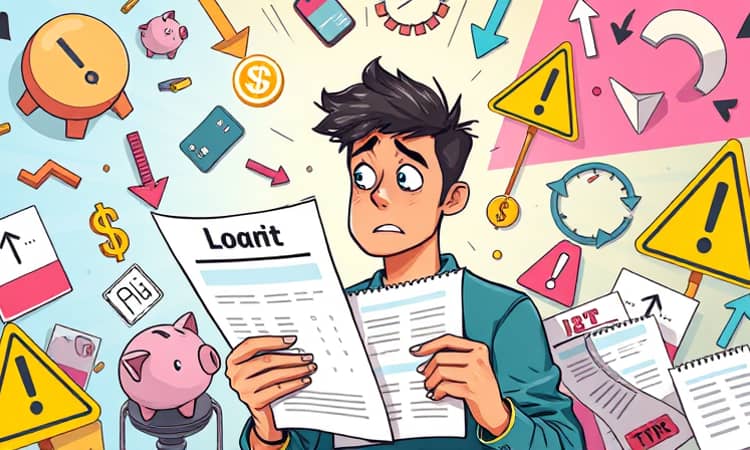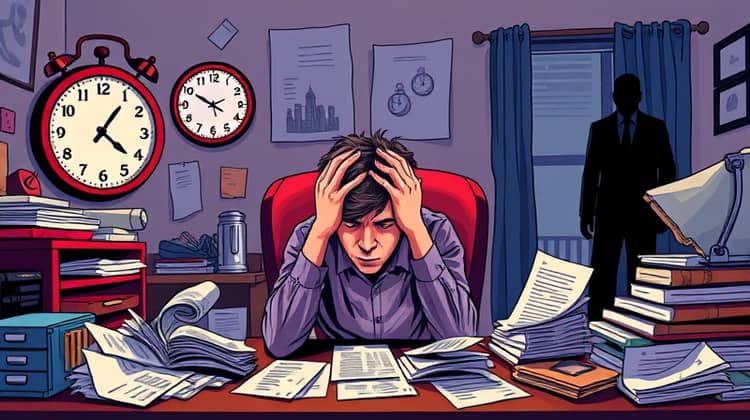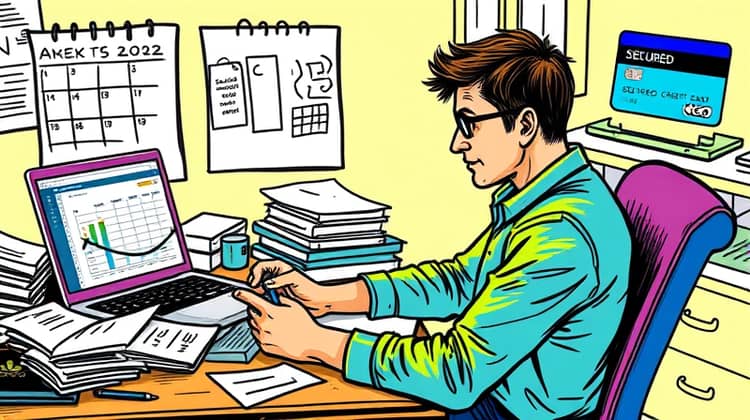Loan Defaults and Your Credit Score: What You Need to Know

Understanding the complexity of loan defaults is crucial in today's financial environment. They can lead to severe repercussions for borrowers, particularly in terms of their credit score. This article aims to explore what happens when a loan defaults, how it impacts your credit, and actionable steps to mitigate these effects. We will also discuss the importance of preventive measures to help you avoid defaulting on a loan in the first place.
Understanding Loan Defaults

A loan default occurs when a borrower fails to repay a loan according to the agreed-upon terms. This can happen due to various reasons, including financial hardship, job loss, or simply overlooking a payment. Depending on the type of loan, the length of time before a default can vary, but generally, it becomes official after a missed payment is overdue by 90 days or more.
When a borrower defaults, the consequences can ripple through various aspects of their financial life. Not only does it lead to potential legal actions by lenders, but it also poses significant risks to creditworthiness, making it more challenging to secure future loans or lines of credit. The importance of understanding loan defaults cannot be overstated, especially for anyone looking to manage their finances effectively.
The Immediate Consequences of Defaulting

Defaulting on a loan can trigger a series of negative consequences. Initially, the lender may impose late fees, which can significantly increase the total amount owed. As the default continues, the lender might escalate their efforts to collect the debt, including contacting credit reporting agencies and legal actions to reclaim the funds.
Another immediate consequence of defaulting is the potential repossession of collateralized assets. For secured loans, like mortgages and car loans, the lender has the legal right to seize the collateral if payments are not made, leaving consumers in an even worse financial position.
- Late fees and penalties accrue.
- Lenders may contact credit reporting agencies.
- Potential legal actions may be taken for debt recovery.
- Collateral, such as cars or homes, may be repossessed.
These immediate consequences emphasize the need for borrowers to stay informed of their payment obligations as ignoring them can lead to a cascade of troubles. Understanding these risks highlights the importance of maintaining budget discipline to avoid falling into the vicious cycle of borrowing and defaulting.
How a Default Affects Your Credit Score

A loan default can have a dramatic impact on your credit score, which plays a critical role in your overall financial wellbeing. Credit scores typically range from 300 to 850, and a default can lead to a score drop of 100 points or more. The severity of this drop largely depends on your previous credit history and current outstanding debts.
Defaults remain on your credit report for seven years, making it challenging to secure any new loans or lines of credit during this time. Financial institutions take defaults seriously and may view the default as a sign of increased risk when assessing future applications for credit.
The Damage is Not Permanent

While the impact of a default can be severe, it’s essential to remember that the damage to your credit score is not permanent. Over time, various strategies can be employed to help rebuild credit scores while reducing the negative impact of a default. With patience and dedication, individuals can recover from a default and move forward with their financial goals.
- Pay bills on time moving forward.
- Reduce debt levels gradually.
- Regularly monitor your credit report for inaccuracies.
Though challenging, recovery and improvement of your credit score are very much attainable when proactive measures are put in place. A combination of time and responsible fiscal behavior can help mitigate past defaults significantly.
Steps to Rebuild Your Credit Score After a Default

Rebuilding your credit score following a loan default requires a strategic approach. The first step is to assess your current credit report to understand where you stand and identify any potential errors that may be harming your score further. Make sure to dispute any inaccuracies you find, as these can be rectified and help improve your score immediately.
Next, create a budget to ensure timely payment of all your bills, focusing on securing essential expenses like housing and transportation. This discipline will help in gradually rebuilding your creditworthiness over time.
- Check your credit report for inaccuracies.
- Set a budget to ensure timely payments.
- Pay down existing debts slowly but surely.
- Consider applying for a secured credit card to establish a positive payment history.
These steps, though simple, require diligence and commitment over time. However, sticking to this plan can significantly improve your credit profile and provide greater opportunities down the road.
Preventing Loan Defaults

Preventing loan defaults is about creating a solid financial foundation. One effective strategy is to maintain a budget that not only tracks income but also anticipates future expenses. This forward-thinking approach can help identify potential financial issues before they arise, allowing for proactive measures to be taken. Additionally, having an emergency fund can be incredibly beneficial in covering unexpected financial setbacks, thereby reducing the likelihood of defaulting on loans.
Educating oneself about credit and borrowing is also crucial. Understanding the terms associated with various financial products can empower individuals to make sound decisions when taking on debt, minimizing the risk of defaulting in the future.
- Create a comprehensive budget to track expenses.
- Set aside an emergency fund for unexpected costs.
- Educate yourself on loan terms and conditions while borrowing.
- Communicate with lenders if you’re facing financial hardship to explore potential relief options.
Ultimately, a proactive approach to managing loans and maintaining financial health can help significantly in averting loan defaults. Being informed and prepared can mitigate risks that lead to defaults, protecting both your credit score and your overall financial wellbeing.
Conclusion

Understanding the intricacies of loan defaults is essential for cultivating a healthy financial life. Defaulting can have serious implications for your credit score, leading to long-lasting effects that hinder future borrowing. However, while these impacts can be severe, it’s important to remember that recovery is possible, and steps can be taken to improve your financial situation.
By staying informed, adopting sound financial practices, and taking proactive measures to prevent defaults, individuals can safeguard their credit scores while ensuring their financial security. Building a solid understanding of how loans work lays a foundation for future success, enabling individuals to navigate their financing options wisely.






